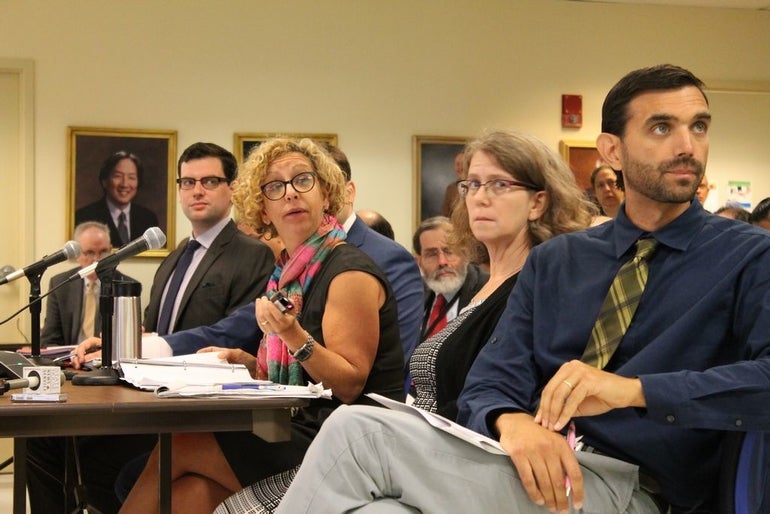Nursing homes looking to expand their facilities will need to participate in Medicaid under a broad overhaul of Department of Public Health regulations presented Tuesday.
“By including Medicaid as a requirement for the determination of needs, this ensures that the most vulnerable populations among us also get access to that high-quality care,” Public Health Commissioner Dr. Monica Bharel told the News Service.
Nora Mann, the department’s new director of Determination of Need, said the regulatory mechanism – which goes by the initials D.O.N. – for reviewing major changes by providers was passed in 1971 and is in need of an update.
“Here’s the problem. It’s been outpaced by a rapidly evolving health care market,” Mann told the Public Health Council. She said the regulation is “administratively burdensome,” and “often unclear.”
Mann described a regulatory process that will put greater emphasis on public feedback and allow for collaboration with the Health Policy Commission, an independent government body that reviews the health care market, investigates certain mergers and acquisitions, and can refer matters to the attorney general. Mann told reporters the Public Health Council would not become an enforcement arm of the oversight agency.
The Health Policy Commission has warned of a growing disparity between community hospitals and health care giants, such as Partners Healthcare, whose market clout is seen as a factor in negotiations with health insurers over rates.
The Public Health Council reviews and votes on proposals by providers for major capital expenditures or substantial changes in service, known as determinations of need.
Tuesday opened a public comment period that will end Oct. 7. The final changes to the determination of need process are not expected until winter.
Bharel said all acute care hospitals already participate in Medicaid. Jay Youmans, senior advisor to the commissioner, said the proposed requirement would have a major impact on nursing homes.
Dr. Alan Woodward, a member of the council, bemoaned duplication of expensive services in close proximity to one another while other areas have an inadequate supply of basic primary care.
“I look forward to a much better process because I think all of those who have served on the Public Health Council have been frustrated by very limited criteria by which we assessed each [determination of need],” Woodward said. He raised the idea of a joint discussion with leadership of the Health Policy Commission.
Matt Kitsos, a spokesman for the Health Policy Commission, said the commission “looks forward to fully reviewing and analyzing” the proposed regulations and said the determination of need process is an “important part of the Commonwealth’s efforts to reduce health care cost growth and ensure access to quality health care.”
Health providers generally pay 5 percent of the approved expenditure of an expansion on community health initiatives, according to the state, but according to Mann’s presentation, the $170 million spent on those initiatives since fiscal 2006 were not driven by data or coordinated.
Mann said under the newly proposed process, the initiative investments would include more community involvement, coordination, accountability and reporting. Mann took an expansive view on community health, including the safety of streets for joggers, proliferation of tobacco and the availability of healthy food choices, saying the investments should “consider all of those things.”
The new head of DPH’s determination of need arrived at the agency less than two weeks ago and previously headed up the attorney general’s charities division, she said.
Mann said the regulatory process failed to account for changes in the health care market that moved standalone hospitals into complex health care systems, which have been encouraged to take on the risk of providing care for a population.
Maddie Ribble, director of public policy and campaign strategy at the Massachusetts Public Health Association, said well crafted community health initiatives could improve health concerns outside the scope of a health care group’s clinical services. As providers take on more responsibility for populations’ health, the health initiatives could play another role, Ribble said, “improving their financial bottom line.”
Mann said the proposed regulations would also reduce paperwork, cutting out 40 pages, or 57 percent of regulation, and would create an expedited review process for projects that amount to maintenance, as opposed to construction of a new wing or addition.
The department will hold public hearings on Sept. 21 in Boston and Sept. 26 in Northampton, and listening sessions in October on community health initiatives.

